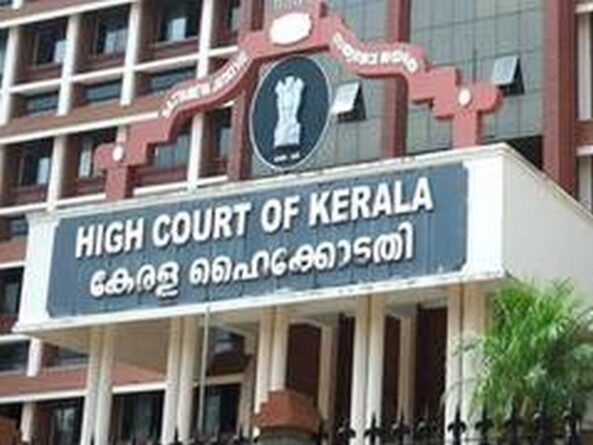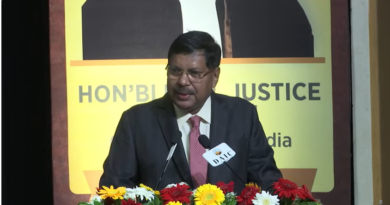Vaccination Program Is Built on Scientific and Epidemiological Evidence, Second Dose to be Given after 84 days: Kerala HC Sets aside Single Judge Verdict
(Judicial Quest News Network)
The Kerala High Court on Friday upheld the appeal of the central government against the single Judge’s verdict to allow the second dose of Covishield vaccine to be taken before the prescribed interval of 84 days.
A division bench of Chief Justices S. Manikunar and Justice Shaji.P Chaly allowed an appeal filed by Central Government and set aside a single-judge verdict which had granted liberty to individuals, who pay for Covishield vaccine, to choose whether to get the second dose anytime after weeks from the first dose but before 84 days interval.
The Court noted that there had been exemptions given to the current 84-day period between the two doses to those officials who go for meetings and to students who are studying abroad, and thus it is not fair to delay it as the vaccines have been already purchased by companies.
Scientific Advice
we are of the view that Government of India have acted in terms of the scientific and expert advice, based on the studies conducted by them, and therefore, it is not for the Constitutional Courts, to analyse the intrinsic aspects of the same, in order to arrive at a different conclusion, which is also impermissible in law. Once it is established that the Government have acted on the basis of such advice, it is for the Government to decide how to go about it, in order to get rid of the emergent COVID-19 Pandemic situation, which thus means, such expert advice, on the basis of scientific study, cannot
possibly be substituted by a judgment of Constitutional Courts, especially when no materials are produced before the Court to show that the expert and scientific advises given to the Government are hasty, bad or ill advised.
Dismissing the contention of petitioner-companies that they have the right to liberty to make a choice between early protection and better protection against the interest of the nation and citizen at large.
The further added that that once the provisions of the Disaster Management Act, 2005 is invoked by the Government, the individual freedom and interest may have given way to the interest of the citizens of the country at large, failing which, the Government would not be in a position to manage, co-ordinate, and implement the measures and activities taken for protecting the rights and liberties of the citizens at large, rather than self-centric and individual protection of the rights.
Not Arbitrary
The Court added that it is also significant to note that such countries only insisted for the administration of two doses of vaccine and they were not concerned with the efficacy of the second dose of vaccine, taken after 84 days. There also, the Government have taken such a policy decision, taking into account the larger interest of the nation and to protect the international convention treaties and obligations. In our view, the choice made by the Government of India, to administer the second dose of vaccine on a particular group, can never be said to be arbitrary or an unfair action, especially for the reason that nobody has a case that the Union Government was interested only to protect the interest of those alone, so as to bring in the theory of discrimination, arbitrariness or unfairness or unreasonable classification.
The court also pointed out that duration of administrating the first and the second doses of vaccines was verified at different times and was finally decided at 84 days, which was on the basis of advice given by the advisory and expert bodies of the Union government and for acquiring herd immunity, which could never be seen otherwise than to protect the interest of the nation.
The appeal by the Central government had said that the single-judge decision was against the settled position that courts do not meddle with policy decisions of the government.
“The precedent if allowed to stay would set at naught the national policy for administration of vaccine and would cause national policy for administration of vaccine would cause serious prejudice for the larger segment. The judgement would militate against the settled position that matters related to government supported by scientific study, the Court shall not meddle with or substitute its view with the view of the administration. “The plea said.
Justice PB Suresh Kumar had, on September 3, passed orders allowing early administration of thesecond dosein case of paid jabs, noting that the fact that vaccination is voluntarily indicates that the interval required by the government can only be considered advisory.
This order was passed on a plea by Kitex Garments Limited seeking to administer the second dose of COVID vaccine to its employees without waiting for 84-days’ time gap between two doses as they had already purchased sufficient stocks of the vaccine.
The court added that the fact that the vaccination is voluntary and there is no compulsion on anyone to accept the same is declared by the Government of India in the website of the Ministry of Health and Family Welfare. If that be so, the requirement to administer two doses of the vaccine and the time interval between the two doses for better protection from infection can only be considered as advisory.
The Fact That the Vaccination Is Voluntary and There Is No Compulsion on Anyone to Accept the Same Is Declared by The Government of India in The Website of The Ministry of Health and Family Welfare. If That Be So, The Requirement to Administer Two Doses of The Vaccine and The Time Interval Between the Two Doses for Better Protection from Infection Can Only Be Considered as Advisory. Justice Suresh Kumar had said in his order.
The single judge bench had passed the order keeping in mind Central Government has relaxed the time interval between the two doses of the Covishield vaccine initially, for students who have to undertake foreign travel for the purpose of education, for persons who have to take up jobs in foreign countries, and for athletes, sports persons and accompanying staff of Indian contingent attending the Olympic Games at Tokyo.
The materials also indicate that later, the said privilege was extended to Indian Government officials mandated to attend official commitments abroad. The privilege was extended again later to those individuals who have to travel abroad for other purposes such as for availing treatment services for any health problems, foreign nationals who have to return to their native countries or to any other circumstances where such foreign travel may be unavoidable. Similarly, the State Government on its own, without the concurrence of the Central Government, has relaxed the time interval between the two doses of the Covishield vaccine to those who intend to go abroad for employment.
In his order Justice Kumar had also directed the Centre to immediately make necessary provisions in the CoWIN portal, so as to enable scheduling of the second dose of the Covishield vaccine after four weeks of the first dose, for those who want to accept the second dose after a period of four weeks in terms of the initial protocol; of the vaccine.
In the present writ appeal the Central government had stated that the dose interval has been revised several times based on emerging scientific evidence with the guidance of the National Expert group on Vaccine Administration for COVID-19(NEGVAC).
The also added that We are also of the view that once the provisions of the Disaster Management Act, 2005 is invoked by the Government, the
individual freedom and interest may have given way to the interest of
the citizens of the country at large, failing which, the Government would
not be in a position to manage, co-ordinate, and implement the
measures and activities taken for protecting the rights and liberties of the citizens at large, rather than self-centric and individual protection of
the rights.
ASGI P. Vijay Kumar and Central Government Counsel Jaishankar V. Nair appeared for the appellants while the respondents were represented by Advocate Blaze.K.Jose and Senior Government Pleader V.Manu



